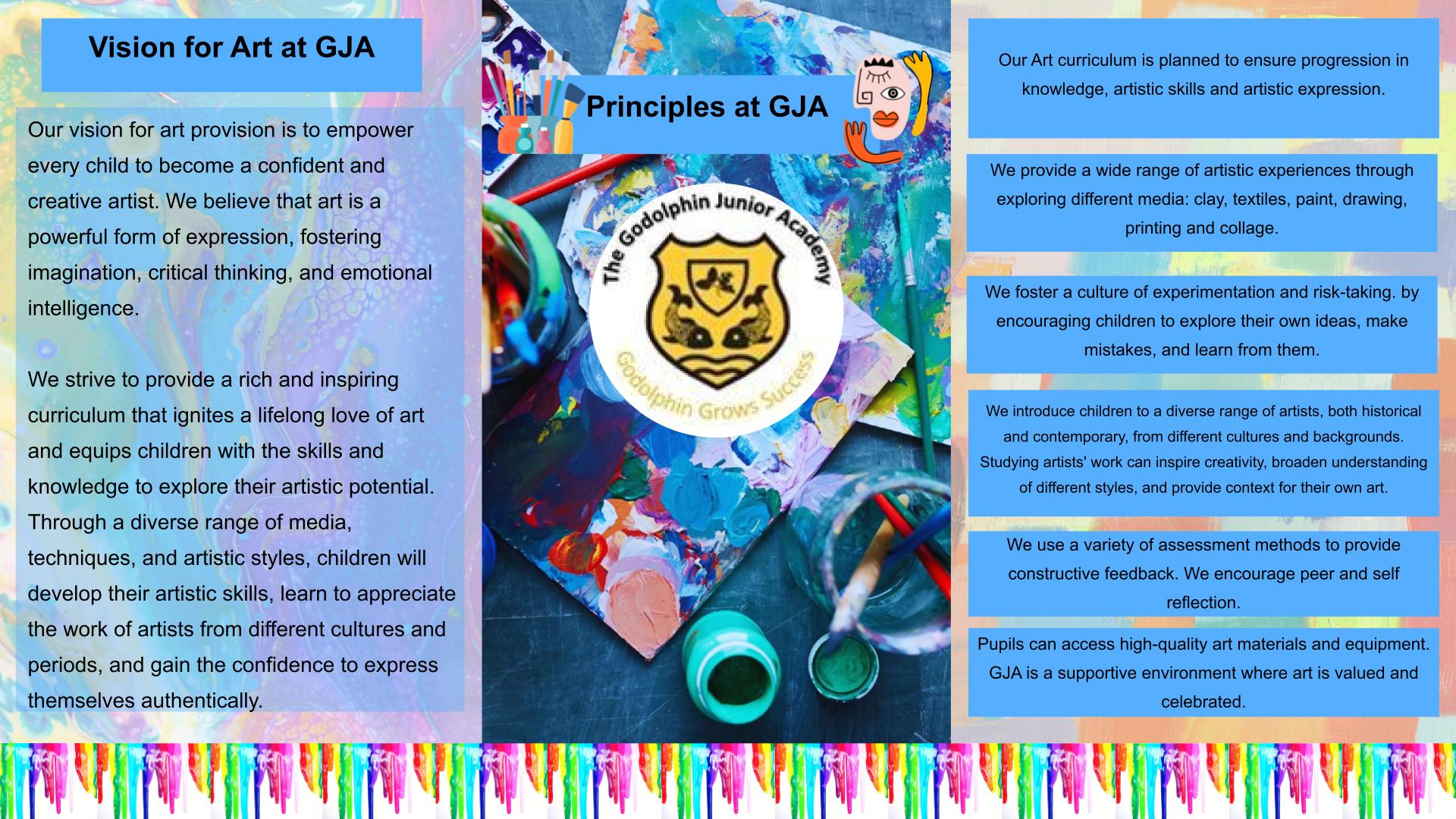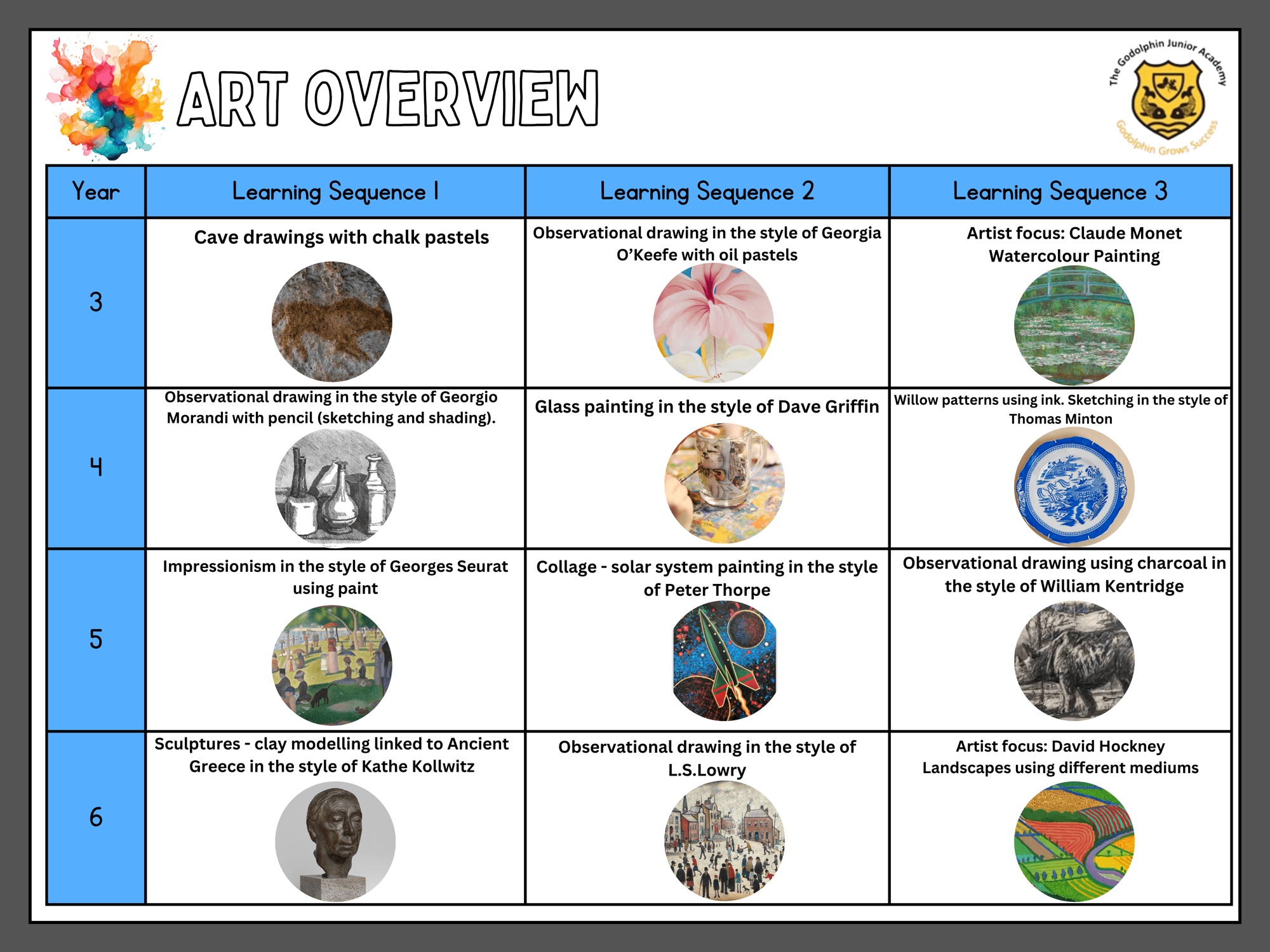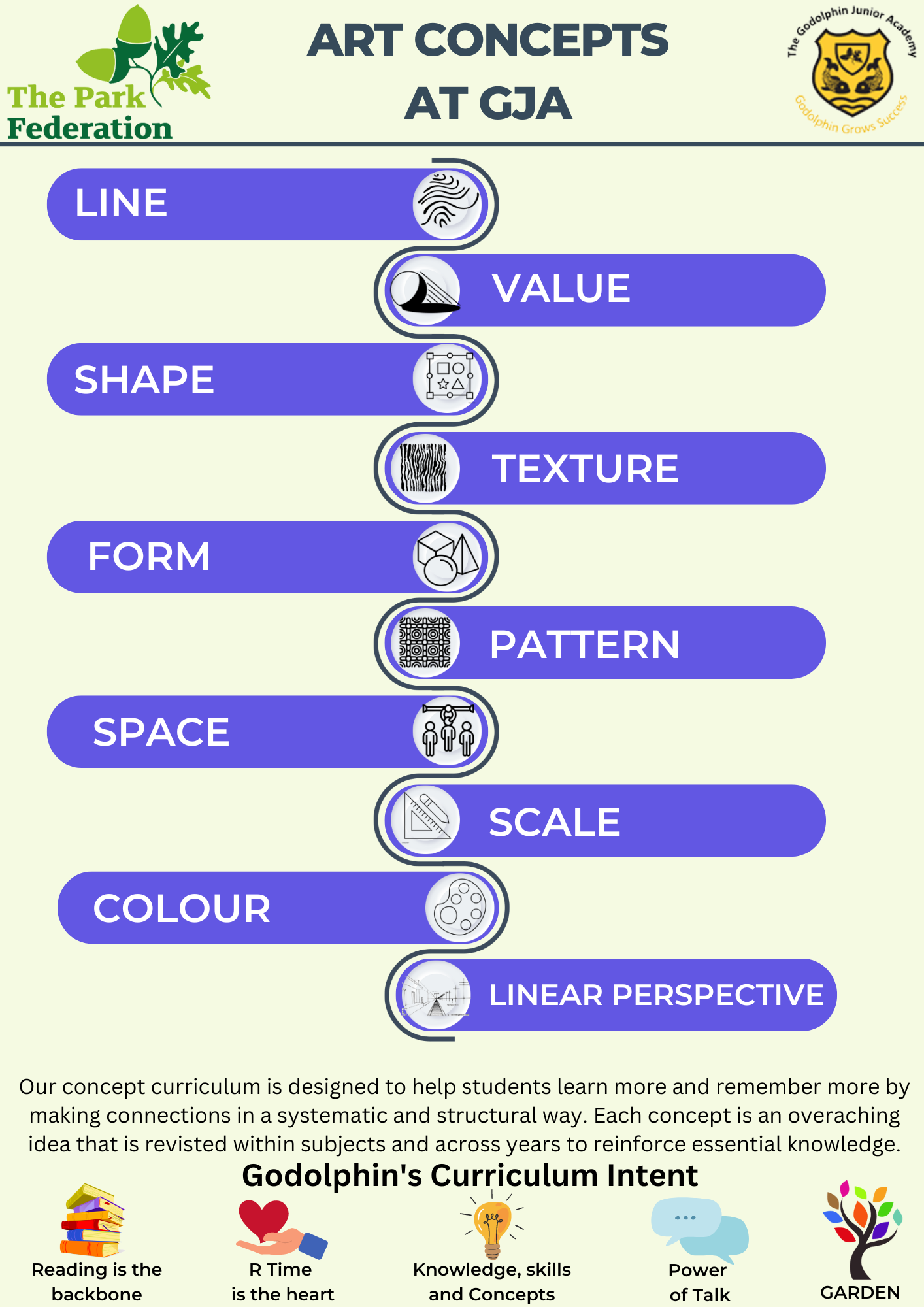Art

Intent
At Godolphin Junior Academy we believe that art stimulates creativity, imagination and inventiveness. We believe that art gives our pupils the skills, concepts and knowledge necessary for them to express responses to ideas and experiences. It ignites their imagination.
“Art is not just a subject to learn, but an activity that you can practise with your hands, your eyes, your whole personality.” Quentin Blake
Art enables children to communicate what they see, feel and think. Children should experiment with their ideas, their use of colour, texture, form, pattern and different materials and processes. Self-evaluation of work is encouraged and children are taught how to be resilient to achieve their goals.
The natural environment (Amaar’s Garden) is one of our biggest stimuli at Godolphin Junior Academy. The children are often taken outside to draw in the natural light, in the woods and under the trees in our wonderful grounds. We encourage them to ask questions about what they see and be explorers of the world around them.
We use sketchbooks to record experience and imagination, to help children develop their ideas and to show progression in their artistic ability. We encourage children to work on their own and collaborate with others on projects in two and three dimensions and on small and large scales.
At Godolphin Junior Academy, high-quality Art skills and knowledge are taught in discrete Art lessons but also at any other opportunity where Art would link to our topics and the wider curriculum. This enables children to apply their art skills and talents across other subjects, to make connections across the curriculum and to use Art as a vehicle to fully immerse themselves in themes and topics. We use our special whole school curriculum days to bring in a love of art, and create whole school displays. Children also explore ideas and meanings through the work of artists and designers. We invite specialist artists in to work with children, to inspire them and challenge their thinking and creativity. We give children the opportunities to visit museums and galleries, developing their skills of observation and evaluation.
We have key concepts running through our art curriculum. Through these concepts, we teach pupils the essential knowledge they need to know to be successful in their learning, and build upon this knowledge as they progress through each unit of art.
Our pupils are able to refer to our art concepts when making connections between artistic skills and outcomes and across the wider curriculum. We know that if pupils can make connections in their learning, then they are more likely to embed this knowledge and remember it over time. This is because pupils have been given the opportunity to think deeply and recognise how knowledge is connected and related to their prior learning.
Art Overview

Art Concepts


View the Art concept progression booklet below. This outlines how each concept or 'big idea' interlinks within each Art topic so that children can make connections which helps them to learn more and remember more over time.
Art Concepts and Overview.pptx
Our progression map of Art knowledge and skills can be found below.
The Art knowledge progression booklet is a collection of the pupil knowledge organisers which support each Art topic. The knowledge organisers outline the essential knowledge that children should know and learn.
The Art skills progression document is taken directly from the National Curriculum and carefully organised and sequenced so that children can develop their skills over time and build upon prior learning.
